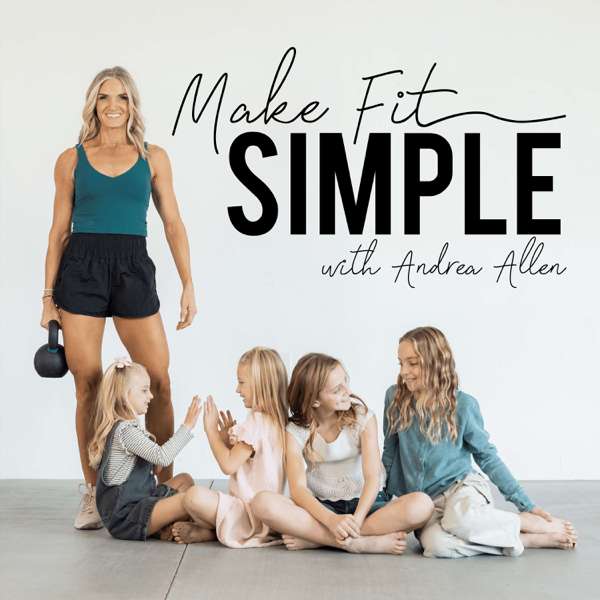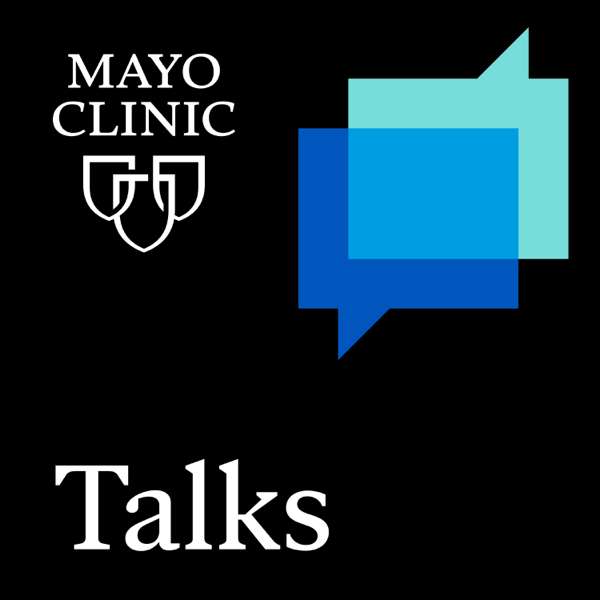Session 235
Jen Briney is host of the Congressional Dish podcast and joins me today to talk about our current healthcare system and where it may be headed.
Enter to win a free copy of my new book The Premed Playbook: Guide to the Medical School Interview. Text BOOKGIVEAWAY to 44222. Promo runs until June 4, 2017.
Today's guest is very interesting as it's someone who wouldn't normally be here on the podcast but with the changing landscape of our U.S. healthcare system, I thought of bringing an expert in this field. Jen Briney's Congressional Dish podcast is devoted to talking about bills that go through Congress. She has read the Affordable Care Act (ACA), Current TBAC, the new AHCA, and has discussed what's in there or not. She comes on the podcast today to talk about these things so you can come prepared for your medical school interviews. This is going to be a good primer for our healthcare system even if you listen to this in 2018 or 2019, assuming there are no dramatic changes.
[03:15] The Congressional Dish Podcast
Being a Congress-watcher, Jen watches Congressional hearing and reads bills and laws being created so that taxpayers, like her, would know what's going with their money. What led her to become so familiar with healthcare was the government shutdown in 2013 when the Republicans were trying to repeal the Affordable Care Act (ACA). She did not like the system as a whole because it's an insurance system, not a healthcare system. But Jen believes it's better than we had before because rules have been put in on the insurance industry. Currently, the Republicans have control of all of government. They're trying to repeal the Affordable Care Act but instead of repealing it, they're putting together bills very quickly with no hearings and no overall plan.
What Jen does now is she's reading all the different versions. She has read the first one that failed. But now the house just passed another version of the American Health Care Act, which she's reading for her next episode.
[05:22] An Insurance Policy, Not a Healthcare Policy
Jen explains there are different ways you can give people healthcare. A lot of other countries do "single payer" where you pay taxes and the government pays for healthcare. It's one of those essential government functions.
Conversely, the United States buys health insurance which is supposed to cover the big catastrophes. Before the ACA, these are for profit companies so what they would do is only cover healthy people because it would cost them the least. What health insurance does is you give them $100 a month and as long as you're healthy, they just put that in their pockets. That's profit. But as soon as you get sick, that's when they have to start to pay for stuff and they really don't like this part.
In order to have this system that still had private insurance at the center of it, the Affordable Care Act put rules in place. Before the ACA, there would be lifetime limits. You'd sign up for a plan. You get cancer and then you look in the fine print of your insurance and they would say, "Once we hit $1 million, we're not paying for anything for you ever again." And you would go bankrupt.
Another common practice with health insurance where once someone would get sick, they would just drop their plan. They would no longer cover you because they don't have to. Basically, they were doing all kinds of shady things to make money.
Why Jen thinks the ACA is better is because there are certain rules. For instance, there are now 10 essential health benefits that if you buy health insurance, they have to cover it such as preventive care. Jen shares her experience that when she went to get a physical exam and all the little bills came in, it cost her over $400. Now, that's illegal. Thanks to the Affordable Care Act. They also have to cover things like ambulances, hospital stays, maternity, prescription drugs, etc. There are things now that when you buy insurance, you know you're going to get. It's better than it was was before but it's still based on private insurance.
What you see now is these insurance companies liked the old days where they could profit by making up all the rules. Now the people in Congress working on behalf of the insurance industry are trying to make those rules go away. These are the people writing legislation designed to help the insurance industry to be more profitable. They're eliminating these rules so these essential health benefits are going to be flexible in certain states, if states wanted to, so they won't have to cover those essential health benefits anymore. This is not something that's good for the people, but it's good for the businesses.
[08:50] Congress Working for Businesses, Not for the People
Jen mentions the website OpenSecrets.org where you can look and see these people who are voting for this elimination of rules and you can see where they're getting their campaign funding from and in almost every case, you can see the health insurance industry and health professionals. Then you can see these companies get invited to help write these bills to repeal the Affordable Care Act. In fact, these insurance companies were in the room to write the Affordable Care Act, as well as the pharmaceutical companies. These health insurance companies want to exist so they use their lobbying power to stay in existence and that is the basis of the Affordable Care Act. Jen says a lot of people call it the "poison pill" and no one right now in Congress is talking about the "single payer" system, the tax-funded system that works in so many other countries.
Jen explains why she says these people are working for businesses and not for us is because when you look at what they're doing, that's who benefits. Jen always looks at who benefits financially. With the American Health Care Act of 2017 (AHCA), it's the businesses that benefit from it.
[10:21] The Affordable Care Act (Obamacare)
In Episode 48 of the Congressional Dish podcast, Jen read the Obamacare and shares some big takeaways.
First, it puts rules on the private insurance industry. It allows the private insurance industry to remain the main way that people get their healthcare in the United States. As opposed to now, if you wanted to get a government plan, you have to get Medicaid, a program for poor people that gives them their health insurance. The federal government picks up all of the Medicaid funding for the states that accepted it. It basically expanded the program beyond what it used to be. So it allows poor people to get government-funded health insurance. Medicare, on the other hand, is for people over the age of 65 and for the most part, they also get government-sponsored healthcare. Everybody else is in the middle. If you make more than 133% of the poverty line or under the age of 65, you have to get health insurance in order to get healthcare for the most part.
This is the basis of the Affordable Care Act. It's a very complicated system that tries to put rules in the private insurance companies so that they will not go bankrupt but still have to cover people with pre-existing conditions. This is expensive because these as your healthcare provider, these insurance companies would have to pay for those benefits for your entire life and they don't want to do that. Hence, ACA forces them to cover you and it forces healthy people to get health insurance to outweigh those costs. Jen thinks it's a very delicate system with a lot of moving parts that have to work together in order to make this private insurance system work.
However, this is currently being actively dismantled. Jen admits she doesn't know what to study when it comes to ACA because we really don't know how much of this is going to survive.
[13:15] Different Ways to Get Health Insurance
One way to get health insurance today is the individual market which didn't exist before. For instance, Jen as a podcaster doesn't have a big corporation paying for her health insurance so if she were single and needed health insurance, she would have to go to each individual company and try to figure out what they cover which can be very confusing. Jen basically ended up with a $400 physical since she had no idea what she was buying.
One of the basics of the ACA is that it has created this individual insurance market where people could go on a website and pick a plan from a selection of companies offering it and compare them based on the premium, coverage, percentages - all of which are being explained, which didn't exist before.
Through the ACA, it separated your healthcare from your employer so you could quit your job and still have health insurance. Apparently, there are so many people in this country that are clinging onto jobs they don't like because of their health insurance.
Other ways of getting health insurance include the small group market and the large employers, where most people in the country are still getting their insurance from. Moreover, the ACA also requires that employers buy plans that cover those ten essential benefits and have minimum of what needs to be provided in return for premiums.
Jen ultimately stresses that the Affordable Care Act keeps the private insurance company at the center of our healthcare and try to make it so they can be profitable and yet we get coverage with fewer medical bankruptcies. Jen adds that this did not eliminate medical bankruptcies in the U.S. nor did it cover everybody but it is better than it was before. Basically, it's a stepping stone.
[15:25] Medical Bankruptcy and Hospitals Covering healthcare
Even if you don't have insurance, you're going to get care anyway, right? You show up to a hospital and you're going to get the care you need. Is this how it works?
Jen thinks it's anecdotal but that's not how it works. Before the ACA, Jen's friend got cancer at 15 years old. She went into remission. They had one awesome summer and then the cancer came back. She was told she was going to need a bone marrow transplant. That's what was submitted to her health insurance company but someone behind the desk decided it was too expensive and said no. Because her parents were not millionaires, she died.
So you can't really separate medical bankruptcy from getting care. If you got hit by a car and you get brought to a hospital, you're going to get the basics so you can get out of there. But what about the follow-up care? What about cancer treatments? You can't get that in emergency rooms.
Jen firmly says this is inaccurate to say that hospitals have to cover you. They do cover the minimums like emergency care but the maintenance and the preventive stuff, that's what keeps you alive long term and that is not covered in the emergency room, especially not on a systemic level when there 325 million people in the U.S.
[17:14] Democrats versus Republicans
Jen has observed that there is so much corporate influence in our Congress right now on both sides. You have the Republican party that wants the insurance industry to write the rules. So they get to call the shots and they decide who gets covered and who doesn't because they believe in an economic theory. They believe in it so strongly that Jen is convinced they're not really looking at it from the people's perspective. They want people to have access to healthcare but access is different from "actually" having healthcare. So the Republicans are really working on behalf of businesses in a way that I think clouds their judgment.
As with the Democrats, they're also corporate in a certain way so they're the ones who created the Affordable Care Act. Instead of nationalizing the healthcare industry like it is in so many other countries, they are also creating the system and doing the middle of the road thing. They can keep the private health insurance in control as long as there are rules. But the people who just want to get healthcare as part of being American citizens are vastly outnumbered in our Congress right now.
[19:00] Healthcare as a Business
Unfortunately, there is no side that is saying that access to doctors and getting healthcare is just an essential that everybody needs. Jen thinks there is an ideological battle happening and it seems to her that government should be covering the things that we all need but we don't know when.
The problem with treating healthcare like any other business is you can't opt out of it. It's not a restaurant, you can't choose to not go there and cook at home. You need the doctors when you need them. And the Republican party, specifically, sees healthcare as a business.
Jen adds it's not necessarily a left versus right thing. Instead, is this a business and should it be for profit or should be a part of the government? This is the real battle going on right now and business is winning big time.
Let's say, you got bitten by a dog and you're bleeding. Are you supposed to go to Yelp for doctors and figure out which one is the cheapest? And then go to the cheapest one questioning where this doctor actually got their degree. Jen doesn't think this makes sense on so many levels. When you're sick the only thing you're thinking of is how do you get better. You're afraid for you actual life.
This is why health insurance companies are an amazing profitable business because it's something we all need and will pay anything for. We don't question our doctors and for most of us, doctors are gods.
Again, it's not a business; at least, it's not supposed to be a business. It's not like buying a shirt and choose from different stores. But it matters when it's your health because you only have one body and if you screw it up, game over.
[23:45] It’s Going to Get More Expensive!
Jen bluntly admits that she is horrified with what the current administration is trying to do by making it all for profit again. It's not a normal business and so a lot of people are going to get hurt by this. With the new American Health Care Act, if it becomes a law, people with pre-existing conditions still have to be covered technically but there are so many loopholes that they've now written into the system.
The The MacArthur Amendment got passed in the house. It's basically a waiver that lets states waive the essential health benefits and states can create the essential health benefits, state by state. This implies that not only will states be able to define the categories of benefits but they also get to decide what's in those categories. For example, a state may decide to only cover three prescription drugs instead of a lot of them which were supposed to be covered or a state may decide they won't cover ambulances anymore.
Moreover, when you get sick, the ACA puts a limit that you only have to pay a certain amount out-of-pocket. Those are all tied tied to the essential health benefits. With the MacArthur Amendment, each state is allowed to determine what essential health benefits mean and it's also going to determine your lifetime and annual limits and what your out-of-pocket expenses are.
Jen thinks this is just going to be much more expensive for customers on so many different levels that people are going to skip care because they can't afford it. Additionally, they say it's designed to reduce premiums. By eliminating the rules on the insurance companies, it's true that premiums might go down because the plans do not cover anything. Jen had one of those. She got her plan for $80 a month but when she went to get a physical, it was $400. Imagine if she actually got sick! That's what they're going back to.
Jen says they promise this is only the first step. The main goal is to allow the private insurance companies to do what they will. This is Jen's biggest concern (and ours too!) because they exist not to provide the best healthcare but to make as much money as they can and divvy it up to their shareholders. This is what for profit corporations do. Jen explains it's not necessarily evil but it is when you do it with healthcare. Again, you're talking about desperate people that will pay anything for their own health. So she doesn't see anything good about it.
[27:35] The Car Insurance Analogy
To better understand what Jen has just discussed, it's like car insurance. When you're looking for a car insurance from a premium standpoint, you're typically looking for the cheapest thing possible and you're not digging around aspects like towing service, accident coverage, or parts replacement. All you want is the cheapest premium because you're a poor college student.
Allowing patients to choose the cheapest premium without understanding that back-end of what they're actually buying. They're basically betting on the American population to not be smart. Jen thinks it's not even smart because what they do is deceptive and put it in the fine prints. Those are tricky things insurance companies do so you're not aware. They don't want you to be aware because they want to get out of covering you when you actually do get sick.
Jen got a cheaper plan for her car and when her battery died and called her insurance asking for roadside assistance, she found out she's not covered for it anymore. She ended up asking for help from someone. Good thing it wasn't a big deal, but what if it was?
However, the problem with comparing health insurance and car insurance, is that you actually don't need a car. So if you don't want to pay premiums, you may choose not to have a car. But you don't have the option to not have a body. You basically don't have any choice. So even if you compare it to other insurances, it doesn't make sense because you don't have to own a car or a home and even life insurance.
[30:40] Where to Read and Understand the Bills
For those who want to know more about these policies, Jen recommends you go straight to the bill. It can be super painful to read legislation but Jen has seen so many conflicting information from sources written by other people. Hence, the best way to truly understand it is to go to Congressional sources and read what they're reading. Jen says it's not that intimidating. She's outlining the stuff on Congressional Dish and she links to all the individual provisions.
Jen uses GovTrack.us to look at the status of bills as well as those that have already been enacted. Jen considers reading the Affordable Care Act was the most miserable experience for her and found it so difficult. It has ten sections. She actually ready the first nine and found out that the tenth edits the first nine. But if you truly want to understand what the system is, you have to go to the bills and the U.S. code and read it. The codes can be confusing to read because of all the numbers or codes written but the laws are written in plain English. So you can go to the sections of the law itself and just read it to understand. It's not as hard as reading bills because you don't have to jump back and forth.
[33:20] What Happens to AHCA Now?

 Our TOPPODCAST Picks
Our TOPPODCAST Picks  Stay Connected
Stay Connected







